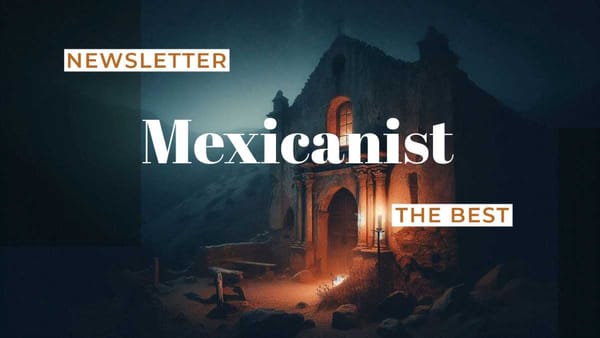Auction of pre-Hispanic pieces in France causes uproar in Mexico
Christie's auction house put 40 pieces of pre-Hispanic art on sale on Tuesday, February 9 in Paris, France. The amount raised amounted to 2.53 million euros.

Christie's auction house put 40 pieces of pre-Hispanic art on sale on Tuesday, February 9 in Paris, France. The amount raised amounted to 2.53 million euros (61.6 million pesos), which meant "the largest sum of pre-Columbian art at Christie's", it informed.
Mexican authorities pointed out that the patrimony was illegally stolen. The auction was called "Quetzalcoatl, feathered serpent", and three of the objects, according to experts from the National Institute of Anthropology and History (INAH), were not authentic although their description indicated so.
Alejandra Frausto, head of the Ministry of Culture, commented: "The pieces were sold and that is outrageous. Even the fake ones were sold. We will have to continue building, in a diplomatic way, with the French government". The trafficking of archaeological pieces is not a novelty, but issuing letters rogatory is now allowed.
"It is very hostile in the legislation, especially in the French legislation, that the burden of proof is placed on the possession of the pieces. When we talk about the burden of proof of how a piece left illegally, it is tough for Mexico to prove at what time a piece left, under what conditions, and how it left, because it is a matter of illegal trafficking or collectors who made collections at a time when there was not even a law on the matter."
The Mexican government has been able to recover close to 3,500 pieces in the present administration and indicated that they will continue collaborating with other nations to recover Mexican cultural heritage.
Among the most valuable pieces in the auction was the Classic Teotihuacan Mask, which was acquired by the collector in 1938 and came from the Pierre Matisse Gallery, according to the auction house's website. It had a starting price of 350,000 euros (8.5 million pesos) and was auctioned at 437,500 euros (10.6 million pesos).
Diego Prieto, director of INAH, told Noticieros Televisa that they conducted an analysis of composition, size, shape, and materials and determined that it is a recently manufactured piece. "It is a piece that comes with a very high starting price, but we would not even claim that piece".
Another in a figure of Cihuateotl, goddess of women who die in childbirth, which had a starting price of 600,000 euros (14.6 million pesos) and was sold for 500,000 euros (12.1 million pesos). It is said to be from the Walter Vanden Avenne Collection.
The Ministry of Foreign Affairs (SRE) indicated in a press release on February 3 that "the commercialization of archaeological goods is a crime under Mexican law and that INAH filed the corresponding complaints before the Attorney General's Office. It demanded the companies involved to desist from this practice that negatively affects the universal cultural richness and diversity".
The agency expressed its concern that the auction house does not verify the provenance and authenticity of the items. In 2019, Mexico failed in its attempt to prevent the sale of some 120 pre-Hispanic objects by a French auctioneer. The Millon auction house sold many of those pieces for a price much higher than previous estimates.




